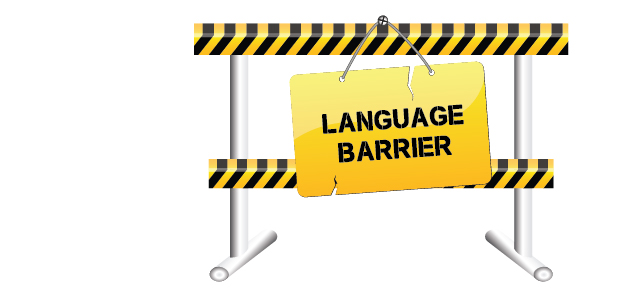I have recently been confronted with the issue of what to do with a client who speaks English as a second language (ESL).
The ESL client will tell me they understand everything I have communicated to them regarding an important CCP § 998 settlement offer, but do they really? Is it enough to follow up with a letter in English confirming the conversation? I do not think so, and, if the case goes south with a costs award against the client, the client may decide the conversation and letter in English is not enough either.
It is far easier to know how to handle the issue of communicating with a client who doesn’t speak English at all.
What do you do when your clients speak just enough English to tell you he or she understands what you are telling them, but you are not quite sure they fully understand the murky and confusing legal concepts you are attempting to communicate to them?
Duty to Communicate with Client
Attorneys have a duty to keep the client reasonably well informed regarding the subject matter of the representation. Bus. & Prof.C. § 6068(m); CRPC 3-500; ABA Model Rule 1.4(a); Rest.3d Law Governing Lawyers § 20. This includes the duty to keep our clients reasonably informed of significant developments in their cases.
Duties When Communicating With Non-English Speaking Clients
It is obvious that an attorney’s duty to communicate is no different than when attorneys represent a non-English speaking client. See Gold v. State Bar (1989) 49 C3d 908, 911-912.
Furthermore, to make things more confusing, an attorney is not required to communicate in a language understood by the client in order to perform competently. However, an attorney is required to communicate adequately with his or her client. See ABA Model Rule 1.2, Comment (1); ABA Model Rule 1.4.
The State Bar of California has opined that consideration should be given to language impediments, which could materially impact the attorney’s ability to communicate adequately. See Cal. State Bar Form.Opn. 1984-77.
ESL Client’s Telling You They Understand What You Are Telling Them
In my experience, ESL clients will tell you they understand what you are telling them so that the torture of legal speak will end. But, is that enough? Possibly, but that is not a defense I would want to rely on in a malpractice suit or ethics inquiry.
Tips on What to Do….
In my office we now send a letter out to our ESL client reiterating what we told them and confirming they told us they understood.
Free Translation of All Letters
Then, we translate the letter into the client’s native language by using a free online translation services. We do this with all communications with ESL client letters. I have used Google Translate and Babelfish translator.
Hire an Interpreter
We will also hire a certified interpreter to be at a meeting with the client if the subject matter is incredibly important. For example, we will employ a interpreter in the client’s native language if the opposing party sends a CCP § 998 offer to compromise. There are too many consequences at stake for accepting or not accepting a 998 offer to not guarantee the client understands what I am telling them.
I will also bring a certified interpreter to a mediation with me and the client to make sure the client is fully aware of what is going on. This is especially important if the case actually settles. The client must be aware of the confidentiality agreement, the CCP § 5141 waiver, etc.
Certified interpreters do cost money, but may save you more in the end by making sure your client understands what you are informing them about their case. Below is a link to the judicial council’s list of certified translators: www.courts.ca.gov/3796.htm
Conclusion: The Rule
In conclusion, it is a much murkier place to be when explaining important legal matters to an ESL client who tells you in English they understand your legal speak. It is advisable to use a free online translator for your correspondence with that client and hire an interpreter when communicating important matters, asking the client to make important decisions that have substantial repercussions on their matter such as accepting or rejecting a settlement offer and deciding to make a settlement offer.
About the author:
 Paul Nathan handles trial work; exclusively represents women in divorce, custody and support matters; represents plaintiffs in personal injury matters; and has handled legal malpractice matters for plaintiffs. Nathan is the author of the forthcoming book, “He Doesn’t Make the Decisions Anymore, What Every Woman in California Should Know About Divorce.”
Paul Nathan handles trial work; exclusively represents women in divorce, custody and support matters; represents plaintiffs in personal injury matters; and has handled legal malpractice matters for plaintiffs. Nathan is the author of the forthcoming book, “He Doesn’t Make the Decisions Anymore, What Every Woman in California Should Know About Divorce.”



0 comments on “Legal Ethics Corner: Communicating with English as a Second Language Clients”